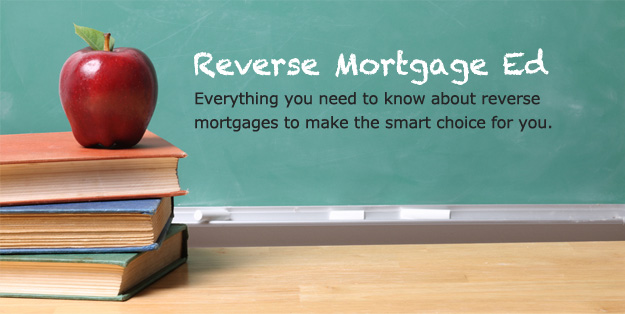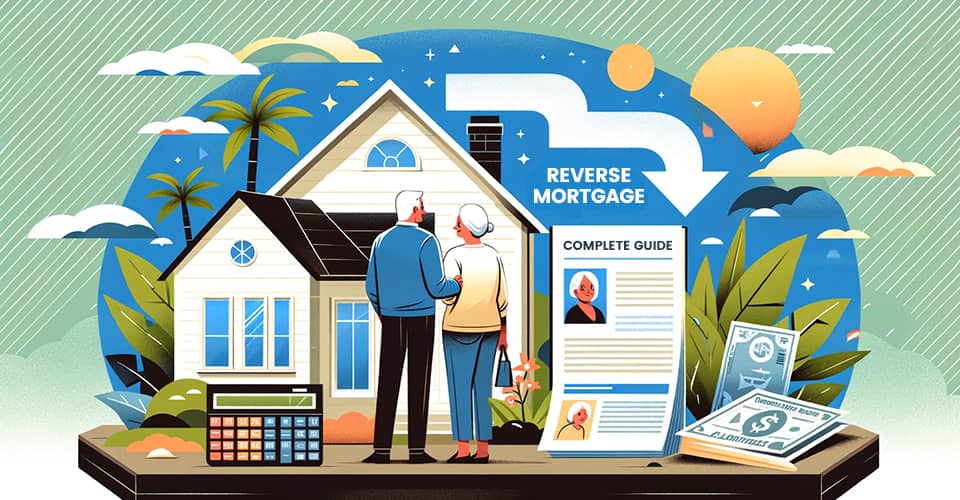How to Purchase Reverse Mortgage and Use It to Fund Your Future
How to Purchase Reverse Mortgage and Use It to Fund Your Future
Blog Article
Unlock Financial Freedom: Your Guide to Investing In a Reverse Home Loan
Understanding the complexities of reverse home loans is essential for house owners aged 62 and older looking for economic flexibility. As you consider this choice, it is vital to comprehend not only how it works yet additionally the implications it may have on your monetary future.
What Is a Reverse Mortgage?

The basic charm of a reverse mortgage lies in its possible to improve monetary adaptability during retirement. Homeowners can utilize the funds for different objectives, consisting of medical costs, home renovations, or daily living expenses, therefore supplying a safeguard throughout an essential phase of life.
It is vital to understand that while a reverse home mortgage enables boosted money circulation, it additionally lowers the equity in the home over time. As interest accumulates on the exceptional financing equilibrium, it is essential for possible consumers to carefully consider their lasting economic strategies. Consulting with a financial consultant or a reverse home mortgage expert can offer important insights right into whether this choice aligns with an individual's financial goals and conditions.
Qualification Demands
Recognizing the qualification requirements for a reverse mortgage is crucial for home owners considering this financial option. To qualify, candidates should be at least 62 years old, as this age requirement allows seniors to accessibility home equity without monthly mortgage repayments. Furthermore, the property owner has to inhabit the home as their main dwelling, which can include single-family homes, certain condominiums, and made homes fulfilling certain standards.
Equity in the home is an additional crucial demand; homeowners normally need to have a substantial amount of equity, which can be identified via an evaluation. The quantity of equity readily available will directly affect the reverse home loan amount. Candidates should demonstrate the capability to preserve the home, including covering home taxes, home owners insurance, and maintenance costs, guaranteeing the residential or commercial property stays in good condition.
Furthermore, potential consumers need to undertake an economic evaluation to evaluate their revenue, credit report, and total economic scenario. This analysis assists lenders establish the applicant's capacity to fulfill continuous responsibilities related to the building. Meeting these needs is essential for securing a reverse home loan and guaranteeing a smooth economic change.
Advantages of Reverse Home Loans
Countless advantages make reverse home loans an attractive choice for senior citizens seeking to boost their economic adaptability. purchase reverse mortgage. One of the main advantages is the ability to transform home equity into cash money without the requirement for monthly home mortgage settlements. This function permits elders to gain access to funds for various requirements, such as medical costs, home enhancements, or daily living costs, therefore relieving monetary anxiety
Furthermore, reverse mortgages give a security internet; seniors can remain to reside in their homes for as long as they meet the car loan needs, fostering security during retirement. The earnings from a reverse home loan can likewise be utilized to postpone Social Protection advantages, possibly leading to higher payments later on.
Additionally, reverse mortgages are non-recourse loans, suggesting that customers will certainly never owe greater than the home's value at the time of sale, protecting them and their heirs from financial responsibility. The funds gotten from a reverse mortgage are normally tax-free, adding another layer of financial relief. Overall, these benefits position reverse home loans as a useful remedy for senior citizens seeking to boost their economic situation while keeping their valued home atmosphere.

Expenses and Charges Included
When taking into consideration a reverse home mortgage, it's essential to recognize the different expenses and costs that can influence the total economic Click Here picture. Recognizing these expenses is important for making an informed decision regarding whether this economic item is right for you.
Among the key prices connected with a reverse home mortgage is the origination charge, which can differ by loan provider yet typically ranges from 0.5% to 2% of the home's assessed worth. In addition, house owners should anticipate closing costs, which may include title insurance policy, assessment costs, and credit score record fees, commonly totaling up to several thousand bucks.
An additional considerable cost is home mortgage insurance coverage costs (MIP), which secure the lender versus losses. This charge is normally 2% of the home's worth at closing, with a recurring annual premium of 0.5% of the continuing to be loan equilibrium.
Finally, it is very important to think about ongoing expenses, such as building tax obligations, homeowner's insurance coverage, and maintenance, as the customer continues to be in charge of these costs. By thoroughly examining these costs and fees, property owners can better evaluate the monetary effects of seeking a reverse mortgage.
Steps to Get Going
Getting going with a reverse home loan involves several crucial actions that can help enhance the web process and ensure you make educated decisions. Assess your monetary circumstance and figure out if a reverse home loan lines up with your long-lasting objectives. This consists of reviewing your home equity, current financial debts, and the necessity for extra revenue.
Next, study numerous lending institutions and their offerings. Search for credible institutions with positive evaluations, clear cost structures, and affordable rates of interest. It's necessary to contrast problems and terms to discover the most effective fit for your requirements.
After choosing a lender, you'll need to finish a detailed application procedure, which normally requires documentation of earnings, properties, and home details. Participate in a counseling session with a HUD-approved therapist, who will supply understandings right into the effects and obligations of a reverse home mortgage.
Conclusion
In conclusion, reverse home loans offer a practical option for seniors seeking to improve their monetary stability during retirement. By converting home equity into accessible funds, house owners aged 62 and older can deal with numerous financial requirements without the pressure of regular monthly payments.
Comprehending the details of reverse read the full info here home mortgages is necessary for home owners aged 62 and older looking for economic freedom.A reverse mortgage is a financial product developed largely for house owners aged 62 and older, permitting them to transform a portion of their home equity into cash - purchase reverse mortgage. Consulting with a reverse home loan or a financial consultant professional can give important understandings into whether this alternative aligns with a person's monetary objectives and scenarios
Moreover, reverse mortgages are non-recourse car loans, indicating that debtors will certainly never owe even more than the home's value at the time of sale, securing them and their heirs from monetary obligation. Generally, these advantages setting reverse mortgages as a functional option for senior citizens looking for to improve their financial scenario while keeping their valued home environment.
Report this page